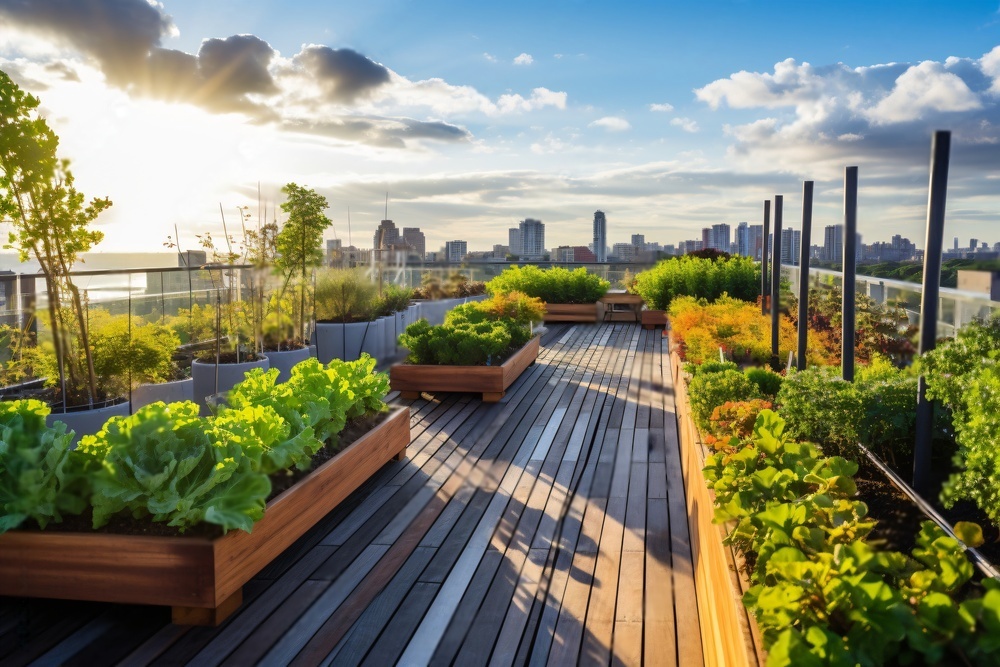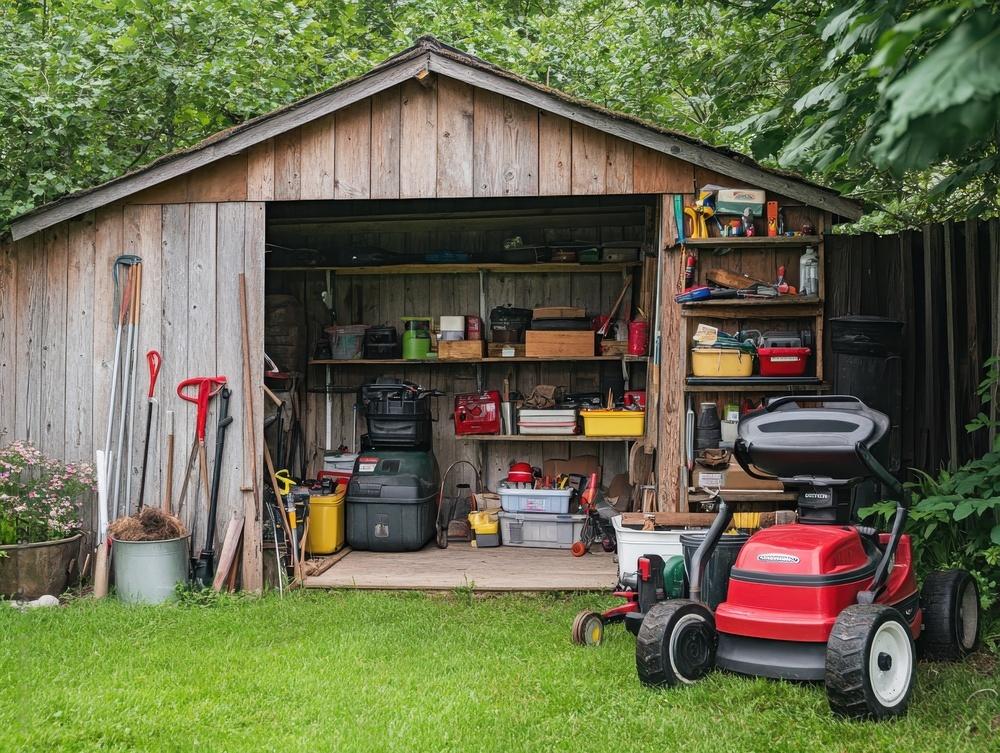Gardening is a beloved hobby that not only beautifies our surroundings but also provides an opportunity to connect with nature. As more people become environmentally conscious, the demand for eco-friendly gardening practices has grown. In this article, we’ll explore expert tips and green thumb hacks to help you create a thriving, sustainable garden that benefits both your plants and the planet. Whether you’re a seasoned gardener or just starting out, these eco-friendly techniques from https://rythmoftheworld.com/ will guide you towards a greener and more rewarding gardening experience.
Composting: The Key to Healthy Soil
One of the most fundamental aspects of eco-friendly gardening is maintaining healthy soil. Composting is an excellent way to nourish your soil while reducing waste. By composting kitchen scraps, yard trimmings, and other organic materials, you create a nutrient-rich amendment that improves soil structure and fertility. Not only does composting benefit your plants, but it also diverts waste from landfills, reducing your environmental impact.
How to Start Composting
- Choose a suitable location for your compost bin or pile
- Collect a mix of green (nitrogen-rich) and brown (carbon-rich) materials
- Alternate layers of green and brown materials, keeping the pile moist but not soggy
- Turn the pile regularly to promote aeration and speed up decomposition
Water Conservation Techniques
Water is a precious resource, and efficient water management is crucial for eco-friendly gardening. By implementing water conservation techniques, you can reduce your water usage while still maintaining a healthy and vibrant garden.
Mulching
Mulching is the practice of applying a layer of organic material, such as wood chips, straw, or leaves, around your plants. Mulch helps retain moisture in the soil, reduces evaporation, and suppresses weed growth. As the mulch breaks down, it also adds nutrients to the soil, promoting plant health.
Drip Irrigation
Drip irrigation systems deliver water directly to the roots of your plants, minimizing water waste through evaporation or runoff. By providing a slow, steady supply of water, drip irrigation promotes deep root growth and helps plants thrive even during dry spells.
Companion Planting
Companion planting involves strategically placing certain plants together to create mutually beneficial relationships. This eco-friendly practice can help deter pests, attract beneficial insects, and improve plant growth.
Examples of Companion Planting
- Marigolds and tomatoes: Marigolds repel nematodes and other pests that can harm tomato plants
- Basil and peppers: Basil improves the flavor of peppers and helps repel aphids and mosquitoes
- Carrots and onions: Onions deter carrot flies, while carrots help loosen the soil for onion bulbs
Integrated Pest Management (IPM)
Integrated Pest Management (IPM) is an eco-friendly approach to controlling pests and diseases in your garden. Instead of relying solely on chemical pesticides, IPM employs a combination of strategies to minimize pest damage while promoting the health of your plants and the environment.
IPM Strategies
- Monitor your garden regularly for signs of pests or disease
- Use physical barriers, such as row covers or netting, to exclude pests
- Encourage beneficial insects, like ladybugs and lacewings, which prey on common garden pests
- Use organic pest control methods, such as neem oil or insecticidal soaps, as a last resort
Embrace Native Plants
Incorporating native plants into your garden is an eco-friendly choice that offers numerous benefits. Native plants are adapted to local climate conditions, requiring less water, fertilizer, and maintenance than non-native species. They also provide habitat and food for local wildlife, promoting biodiversity in your garden.
Benefits of Native Plants
- Reduced water consumption and maintenance needs
- Increased resistance to pests and diseases
- Enhanced biodiversity and support for local ecosystems
- Unique and beautiful additions to your landscaping
As you can see, eco-friendly gardening is not only possible but also rewarding. By implementing these expert tips and green thumb hacks from https://rythmoftheworld.com/, you can create a thriving, sustainable garden that benefits both your plants and the environment. Happy gardening!
Key Takeaways
- Composting is an eco-friendly way to nourish your soil and reduce waste
- Water conservation techniques, such as mulching and drip irrigation, minimize water usage
- Companion planting creates mutually beneficial relationships between plants
- Integrated Pest Management (IPM) promotes eco-friendly pest control strategies
- Native plants require less maintenance and support local ecosystems
- Eco-friendly gardening benefits both your plants and the environment
- Implementing expert tips and green thumb hacks leads to a thriving, sustainable garden
Embracing eco-friendly gardening practices is a rewarding and impactful way to cultivate a thriving garden while minimizing your environmental footprint. By implementing expert tips and green thumb hacks, such as composting, water conservation, companion planting, Integrated Pest Management, and incorporating native plants, you can create a beautiful and sustainable outdoor space. As you nurture your eco-friendly garden, you’ll not only enjoy the fruits of your labor but also contribute to a healthier planet for generations to come. So, roll up your sleeves, get your hands dirty, and discover the joys of eco-friendly gardening today!
What are the benefits of composting in eco-friendly gardening?
Composting is an eco-friendly way to nourish your garden’s soil while reducing waste. By composting kitchen scraps, yard trimmings, and other organic materials, you create a nutrient-rich amendment that improves soil structure and fertility. Composting not only benefits your plants but also diverts waste from landfills, reducing your environmental impact.
How can I conserve water in my garden?
To conserve water in your garden, consider mulching and installing a drip irrigation system. Mulching helps retain moisture in the soil, reduces evaporation, and suppresses weed growth. Drip irrigation delivers water directly to the roots of your plants, minimizing water waste through evaporation or runoff, promoting deep root growth and plant health.
What is companion planting, and how does it benefit my garden?
Companion planting involves strategically placing certain plants together to create mutually beneficial relationships. This eco-friendly practice can help deter pests, attract beneficial insects, and improve plant growth. Examples include planting marigolds with tomatoes to repel pests, basil with peppers to improve flavor and repel insects, and carrots with onions for pest control and soil benefits.
How can I control pests in my garden without using harsh chemicals?
Integrated Pest Management (IPM) is an eco-friendly approach to controlling pests and diseases in your garden. IPM employs strategies such as monitoring your garden for signs of pests, using physical barriers to exclude pests, encouraging beneficial insects, and using organic pest control methods like neem oil or insecticidal soaps as a last resort.
Why should I include native plants in my eco-friendly garden?
Incorporating native plants in your garden is an eco-friendly choice that offers numerous benefits. Native plants are adapted to local climate conditions, requiring less water, fertilizer, and maintenance than non-native species. They also provide habitat and food for local wildlife, promoting biodiversity and supporting local ecosystems while adding unique beauty to your landscaping.







